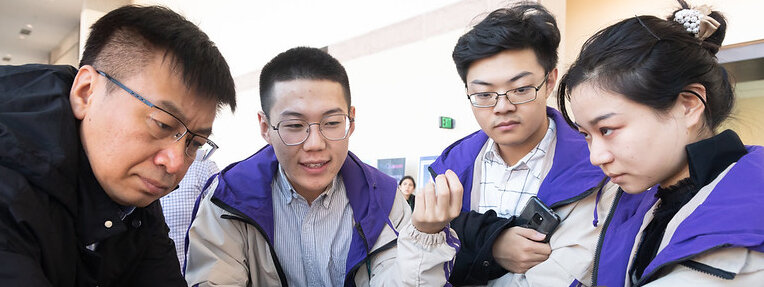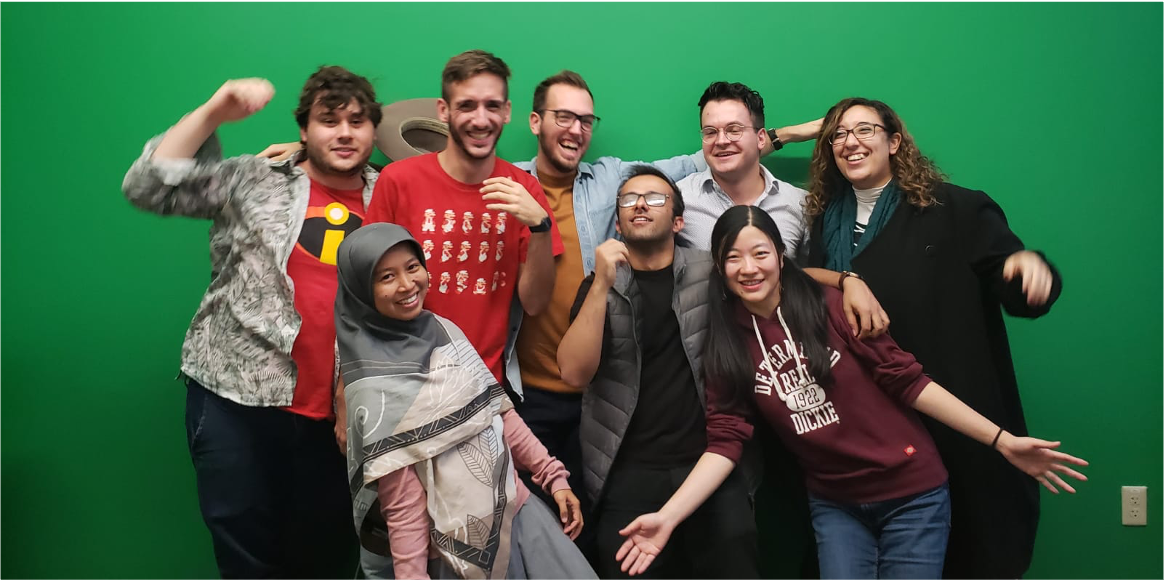Navigating iGEM and beyond: Introducing The Mentors Network and EduHall
by the iGEMCommunity Education Network
Christopher Kuffner, Varsha Jaisimha and Cibele Zolnier gave a session on this topic at iGEM’s 2020 Giant Jamboree (iGEM Video Universe)
The iGEM Mentorship Program has been providing mentorship opportunities to iGEM teams and alumni since 2015. We at the iGEM Education Network (formerly After iGEM Education Committee) have continued to analyze data from the program, to make improvements and better serve iGEMers around the world. This year we plan to launch two new initiatives – the Mentors Network and EduHall.
Our motivation
From our surveys, we have learned that the iGEM Mentorship Program has been effective in helping teams with various challenges they may face in April or May when the program typically starts. Mentors are able to help teams design their presentations, get their parts registered, fill out their safety forms, fulfill judging requirements, and generally get ready for the Jamboree.
Geographical Distribution of 2020 Mentors
In the 2020 iGEM season, we had far more mentors volunteering than teams requesting mentorship. While this might partially be due to the pandemic, we like to be optimistic and believe this trend will continue. And so, we want to create a place for these many volunteers to apply and truly help teams and the greater iGEM community. With a very large number of mentors comes a huge diversity of experience, and all of the skills brought by each mentor is important, especially in the early stages of a project. The distribution of mentors in our 2020 program is shown on the left.
The Mentors Network
The aim of the Mentors Network is to flexibly provide mentorship on various topics to teams throughout the entire process – starting in the early stages before the competition officially begins, continuing through to the Jamboree, and then following on to the iGEM Community program. Our Mentorship Program currently pairs teams with mentors on a one-to-one basis of projects and mentor expertise relevant to the project. iGEM requires more than just subject matter expertise, so, we are building another platform that can help teams with additional challenges like fundraising, recruitment, brainstorming, and deliverables. With the Mentors Network, teams will better be able to connect with several volunteer mentors to draw on expertise across a variety of domains.
In the early stages, teams can request help with tasks such as fundraising, brainstorming, recruitment, project selection, and even advisor selection that are incredibly important to the team’s later success. Mentors can help connect teams to the many opportunities available to them after the competition is over, such as publishing their work, pursuing an entrepreneurial path, or considering a career in this field.
In addition to the benefits offered to teams, the Mentors Network also offers many benefits for mentors, including:
Satisfaction in helping iGEM teams and giving back to the community
Opportunity to improve teaching and gain experience and build reputation as a mentor
Expand one’s synthetic biology career network and seek help from other mentors
Acquire familiarity with the iGEM judging process and prepare to serve as an iGEM Judge
The Mentors Network will be hosted on JOGL and Slack. Mentor profiles will include details on availability and commitment. Our committee will work to ensure that requests for help from mentors will not exceed the capacity of what they have volunteered to provide.
EduHall
The second initiative we plan to launch this year is EduHall. Our goal is to provide a centralized location for the various educational resources for synthetic biology developed by iGEM teams and committees, including our own. Many teams every year face different challenges through the competition, and many of them create their own resources in response. These resources are currently scattered throughout the web.
We aim to critically review these materials and then feature the best of them in a location where they will be noticed by teams who may benefit from them. We also plan to include a platform for feedback on these resources that will make iterative improvement possible. We hope that providing an improved infrastructure for accessing these resources will accelerate the spread of synthetic biology in international institutions.
Recently, the Canadian Synthetic Biology Education Research Group (CSBERG) published the first pedagogical project focused on iGEM that explored the influence of the 2019 iGEM teams on education. Through targeted feedback on content within EduHall, we aim to collect pedagogical data on an international scale. We hope that the data we gather will eventually be used to build a central source supplementing the Mentors Network in critical areas, paying particular attention to the unique hurdles faced by iGEM teams in different regions.
How to get involved
We’re excited to welcome new and returning mentors to the Mentors Network, and look forward to helping the iGEM 2021 teams through mentorship. If you have previous iGEM experience and would like to be a mentor through either the Network or our program, please contact us at after-education [AT] igem [DOT] org.
And if you are a member of an iGEM 2021 team, or are thinking of forming a team, we invite you to apply for mentorship soon available on the iGEM website.
We’re looking forward to more exciting and rewarding mentorship experiences for both the mentors and the teams signed up for mentorship in this next iGEM season!
The iGEM Mentorship Program is run by the iGEM Community Education Network.
Click here to learn more about the Mentorship Program.
Click here to learn more about the iGEM Community Education Network.
Find your next opportunity: Click here to learn more about iGEM Community.











